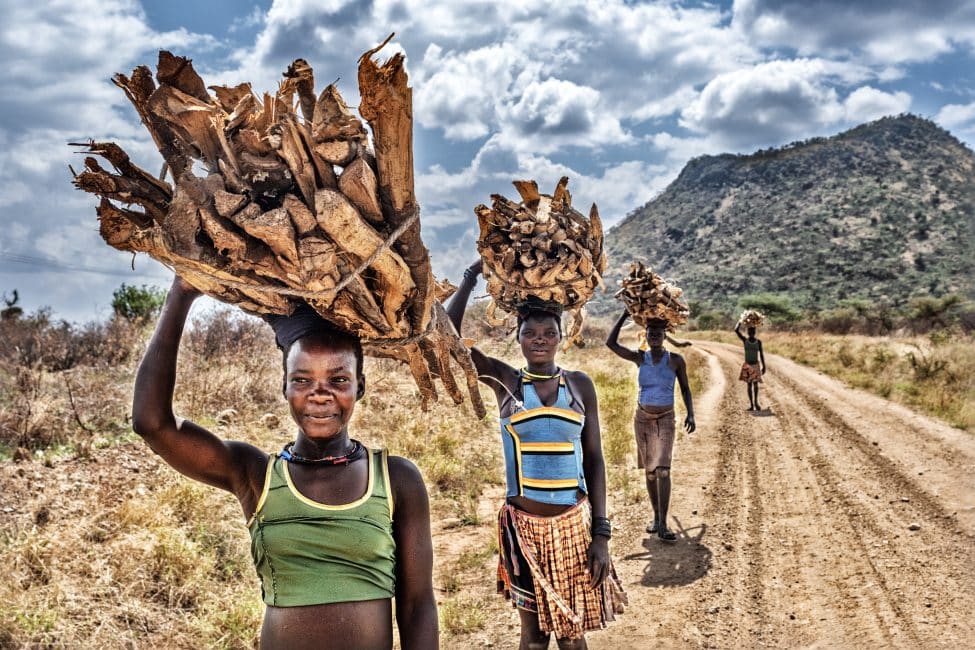Dressed in colourful sheets, they herd their cattle through vast savannah landscapes in search of fresh grass and water. This is the age-old lifestyle of pastoralists in Karamoja, a region in north-eastern Uganda. Here, more than 80 per cent of the population relies on pastoralism as their livelihood. Today, however, we see these very same people lugging wood and selling charcoal along the roadside.
What is going on?
Flare-ups of conflict and hunger hit the most vulnerable hardest
Over the last three years, the Karamoja region has seen a resurgence of conflicts between various ethnic groups, after a decade of relative peace. These conflicts have added to an already explosive cocktail of poverty, corruption, political violence and climate change. These ethnic conflicts are not limited to organised cattle raids, but also result in the violent looting of entire villages. In this ongoing violence, the most vulnerable pastoralist communities do not only lose their livestock and all their other possessions: many human lives are also lost.
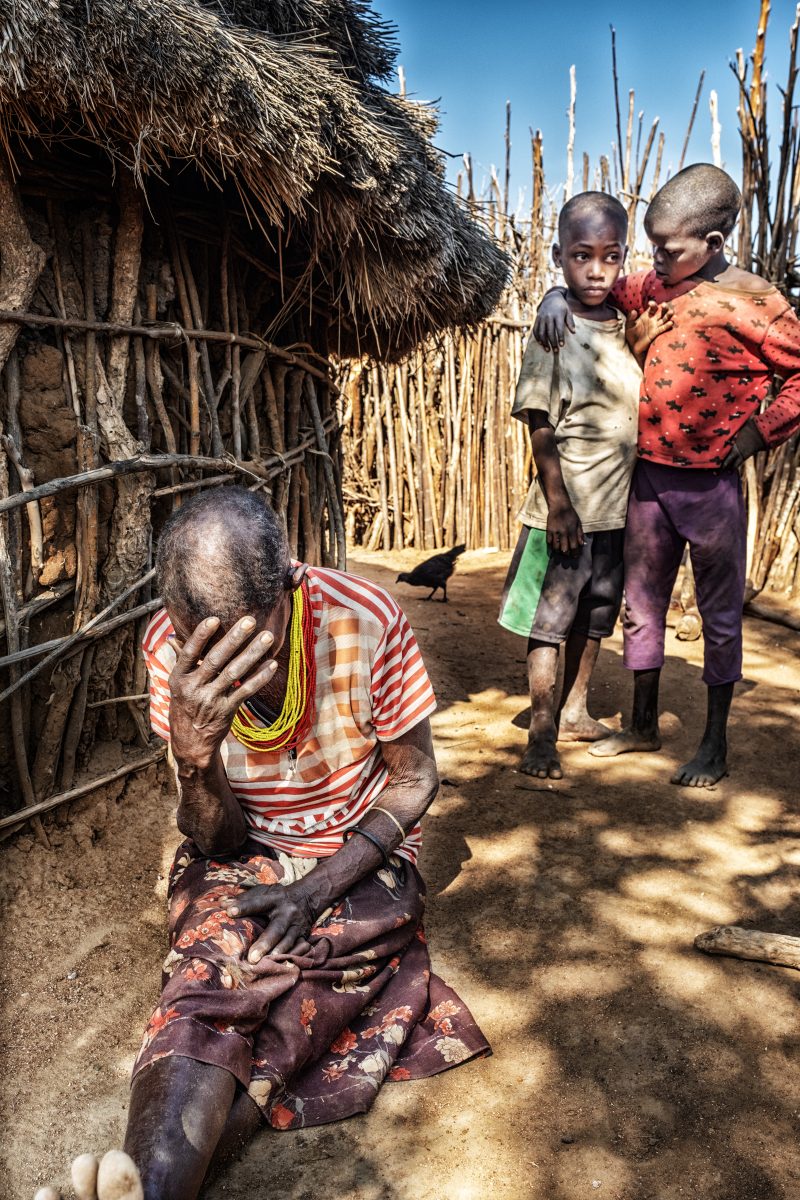
Due to the high insecurity, the risks for pastoralists have become too great. They are increasingly forced to abandon their traditional, semi-nomadic way of life, which is perfectly adapted to this environment, and dedicate themselves unwillingly to growing crops. This year, however, extreme drought and infestations of army worms led to massive crop failures. The people are at their wit’s end.
“I used to keep chickens, but they were all stolen,” Ngorok Angolekori testifies. “When this year’s harvest also failed and grain stocks ran out, it became very difficult to find enough food. My daughter starved to death just after giving birth to her third child. In June 2022, the three-month-old baby also died. Were it not for the fact that the entire village had been deprived of all its goats and cows, we would have managed to keep the infant alive with milk,” she tells us, pointing to the grave a few metres away from her hut.
Stolen food security
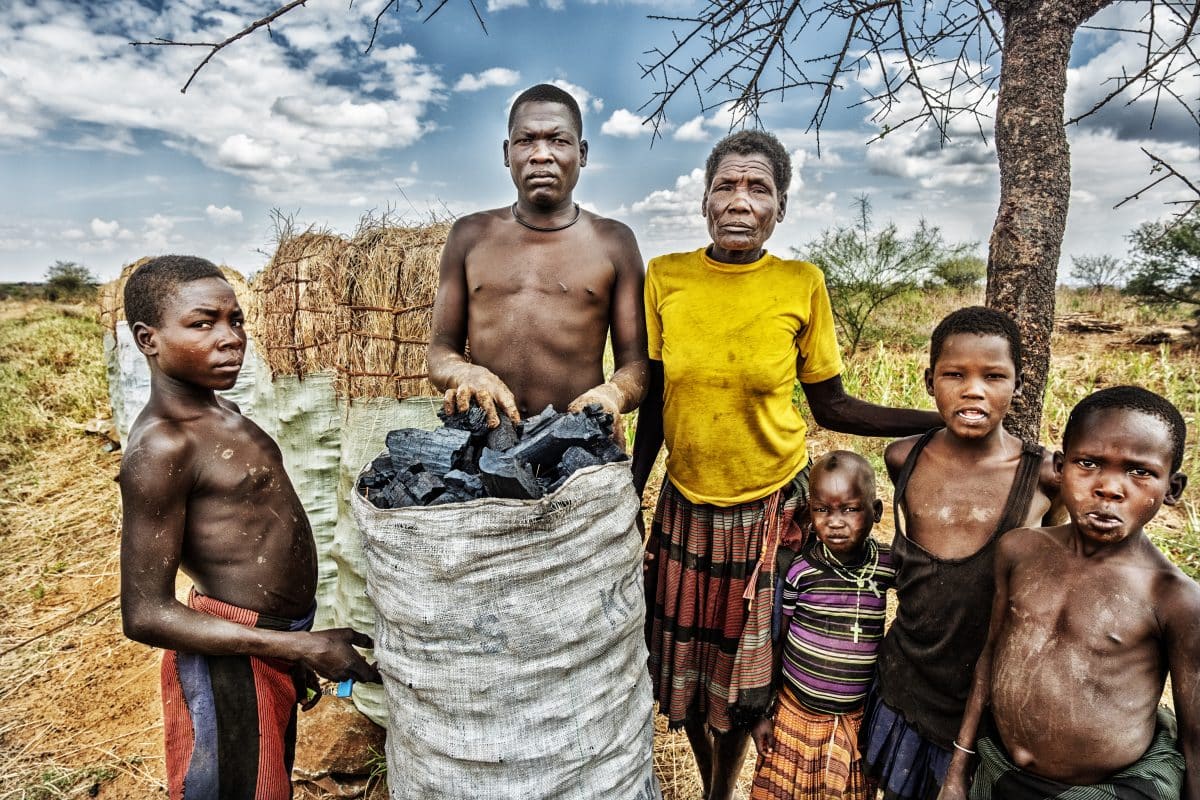
The disastrous numbers speak volumes. More than 2,000 people starved to death between June and September 2022. 41% of the local population (518,000 people) are facing critical food insecurity today. The situation is only expected to get worse as the final months of the dry season approach, with food stocks rapidly dwindling. As a last resort, many victims are turning to logging to sell timber and charcoal. The conflict in Karamoja is therefore leaving visible marks on the population and their increasingly barren environment.
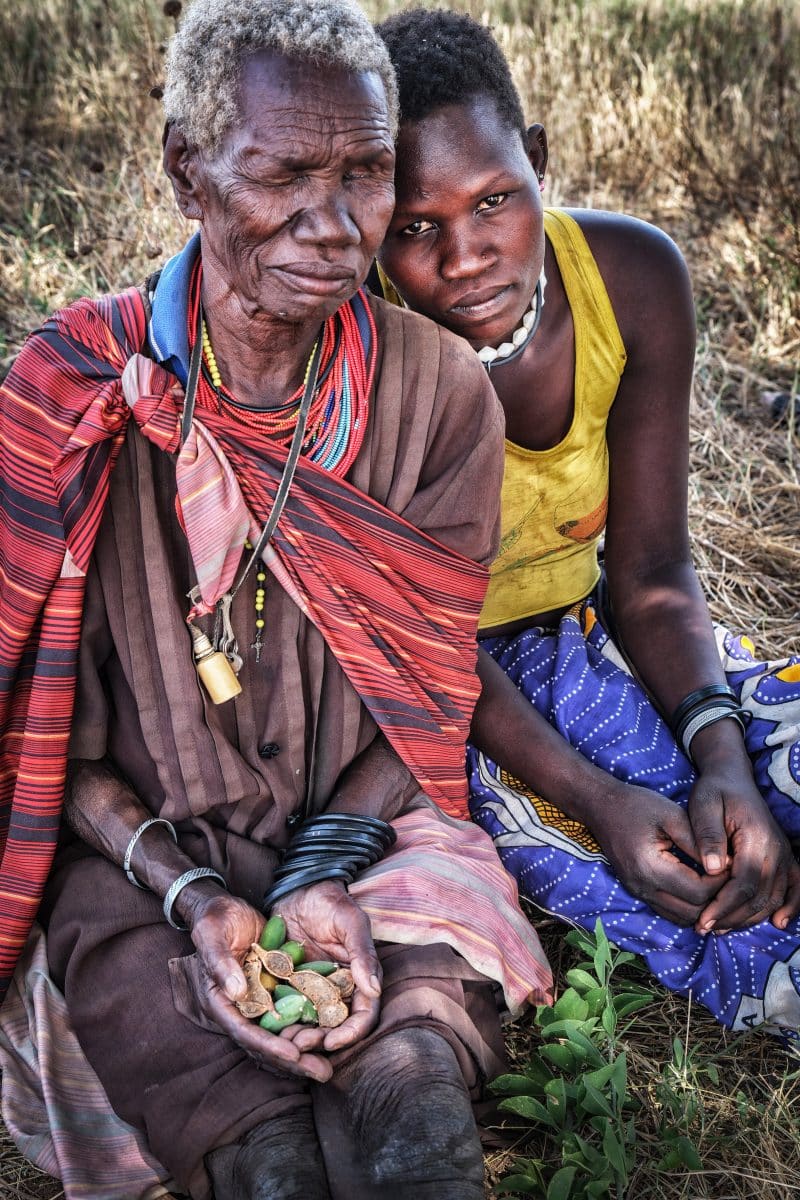
.
“In 2019, all our livestock was stolen: 22 goats, two cows and two calves in total. The looters also took cooking utensils, clothes and food supplies with them. What remained was sadness and loneliness, now that we are left without our animals,” Margret Angolere, a victim of multiple lootings, testifies. “We have no choice but to rely on nature. We collect wild plants and fruits, and cut wood nearby that we exchange for brewer’s grain.” Brewer’s grain is the residual product of local breweries, which is normally fed to livestock.
The war in Ukraine hampered grain supplies and food prices skyrocketed. The price of maize meal tripled in a few months. Apart from wild plants and fruits, brewer’s grain is the only food that many people can still afford.
Cash saves lives
As an immediate response to the critical food insecurity, we provide humanitarian assistance in the form of cash to the most vulnerable households. These households, who are often best placed to determine their most pressing needs themselves, receive a small monthly sum without further conditions. It is a proven method that gives people affected by extreme food insecurity the freedom to take control of their own recovery and regain control of their lives.
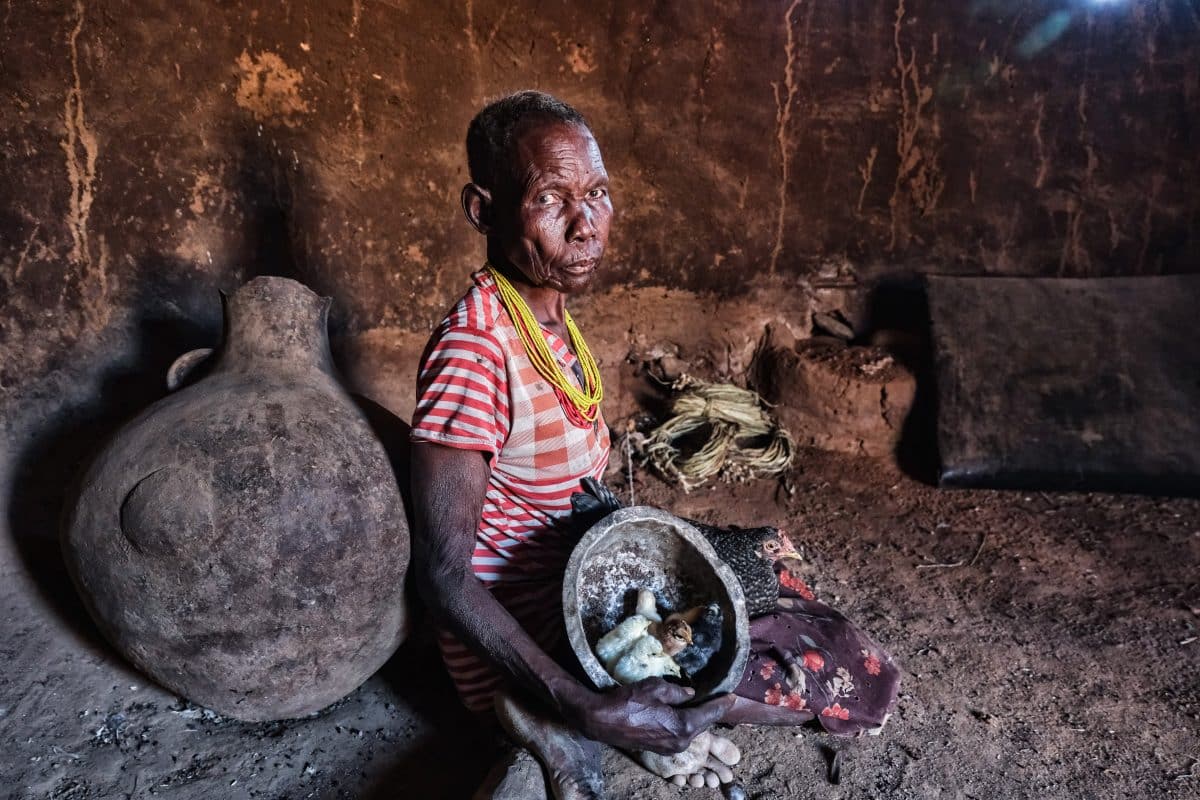
In Karamoja, we support 1,559 vulnerable families for five months with a monthly unconditional cash grant of 20 to 25 euros, to bridge the dry season. Most of them are people with disabilities, the elderly, chronically ill and homeless. For many, this small amount means the difference between life and death.
“Without this unconditional cash grant, I would not be alive today,” Ngorok Angolekori confirms. “How you see me now is not how I was a few months ago. Back then, I was dying. I did occasionally get something to eat from people in my community, but I was no longer able to fetch water just a kilometre away.”
Women like Margret and Ngorok are no exception. Violent looting affects just about every villager in the region.
Women call for peace
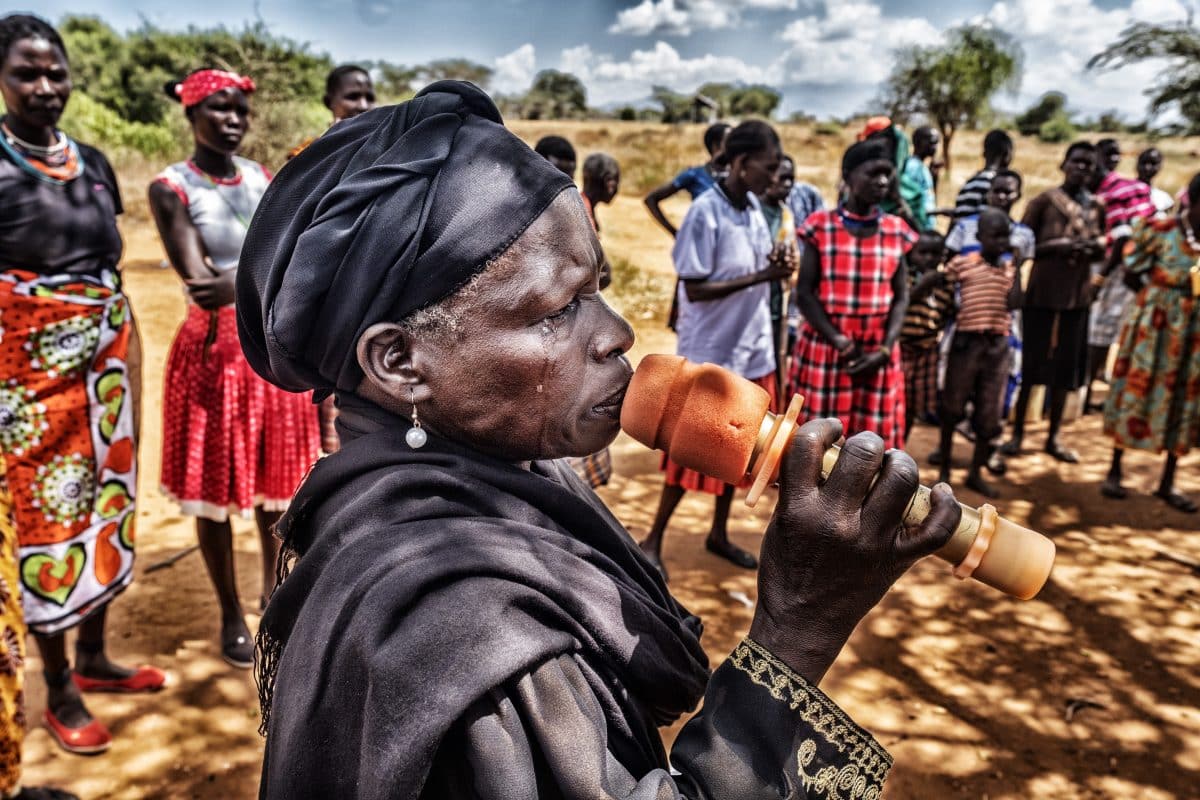
In the centre of Nawaikorot’s market square, a company of women perform a play that attracts attention. It is the women’s peace forum of Abibah Moru, a dedicated female advocate for peace. They re-enact a violent looting followed by a series of testimonies. Abibah takes the floor first. Over the past two years, she has been the victim of five lootings and lost a total of 45 goats, 15 cows and more than 30 chickens, as well as clothes and cooking utensils. But it did not stop there:
“Last week, on the night of 4-5 December, a little after midnight, they struck again. We heard four shots, three of which hit: in the thigh, lower back and head. He was dead instantly. My son, John Moru, killed by looters. He was only 26 and leaves behind a wife of 25 and two young children,” she testified in at the market square before a large group of bystanders, tears rolling down her face.
For more than 20 years, she has been travelling around the region with women’s peace forums, calling for voluntary disarmament.
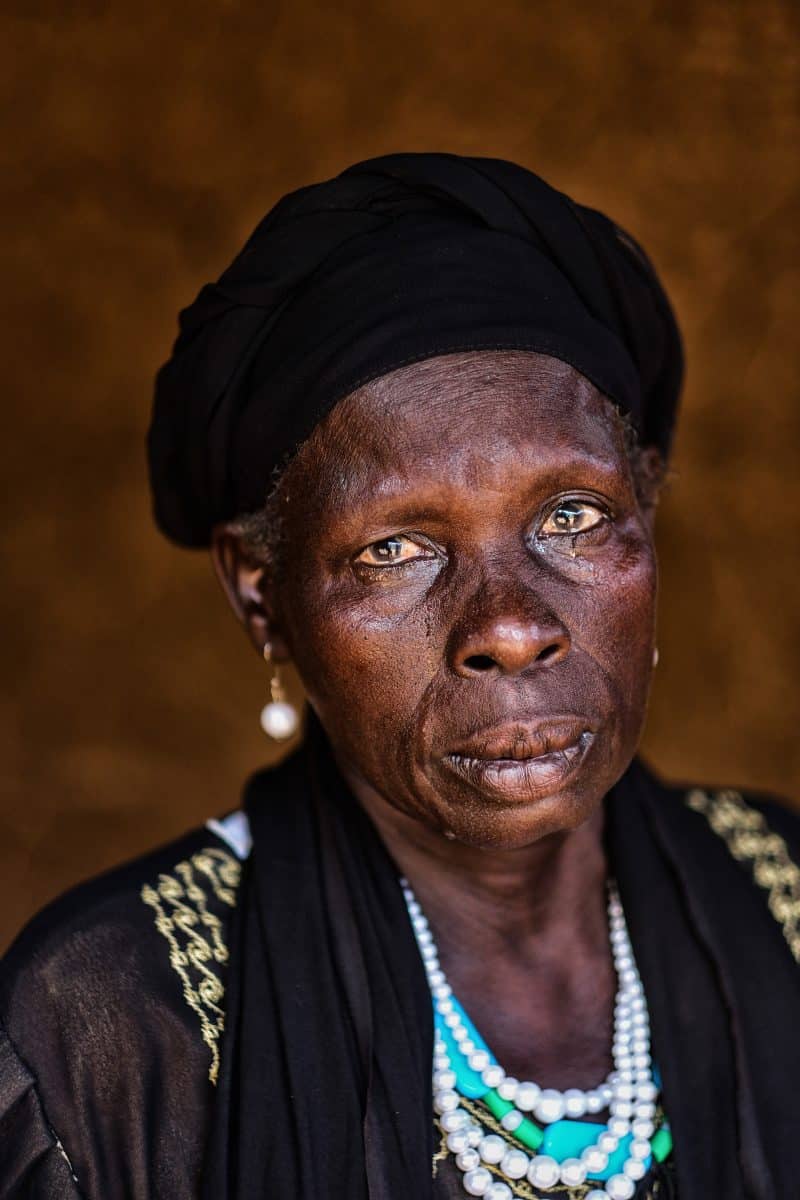
“Once everything has been looted, only one final coup de grace remains: the routine killing of every young man to prevent possible counterattacks,” she explains. “The looters come from within our own communities. When we stage our discourse, the looters may not be present, but their close relatives often are. We hope that seeing our tears can make a difference.”
Vulnerability motivates change
Over the past two years, Abibah’s peace forum has managed to remove an arsenal of arms from circulation through voluntary disarmament. Those weapons are then handed over to the security forces. After the death of her son, Abibah is more determined than ever:
“I will not be silenced. I am not afraid. My story must be told, and every mother should repeat it to her sons. For this, I am willing to put my life on the line.”
Together with our local partner, Karamoja Development Forum, we support 14 women’s peace forums in the region.
Hope in times of uncertainty
Three years after the resurgence of conflicts in the region, a peaceful solution remains to be found, despite the increased presence of security forces. Nevertheless, the future is not hopeless.
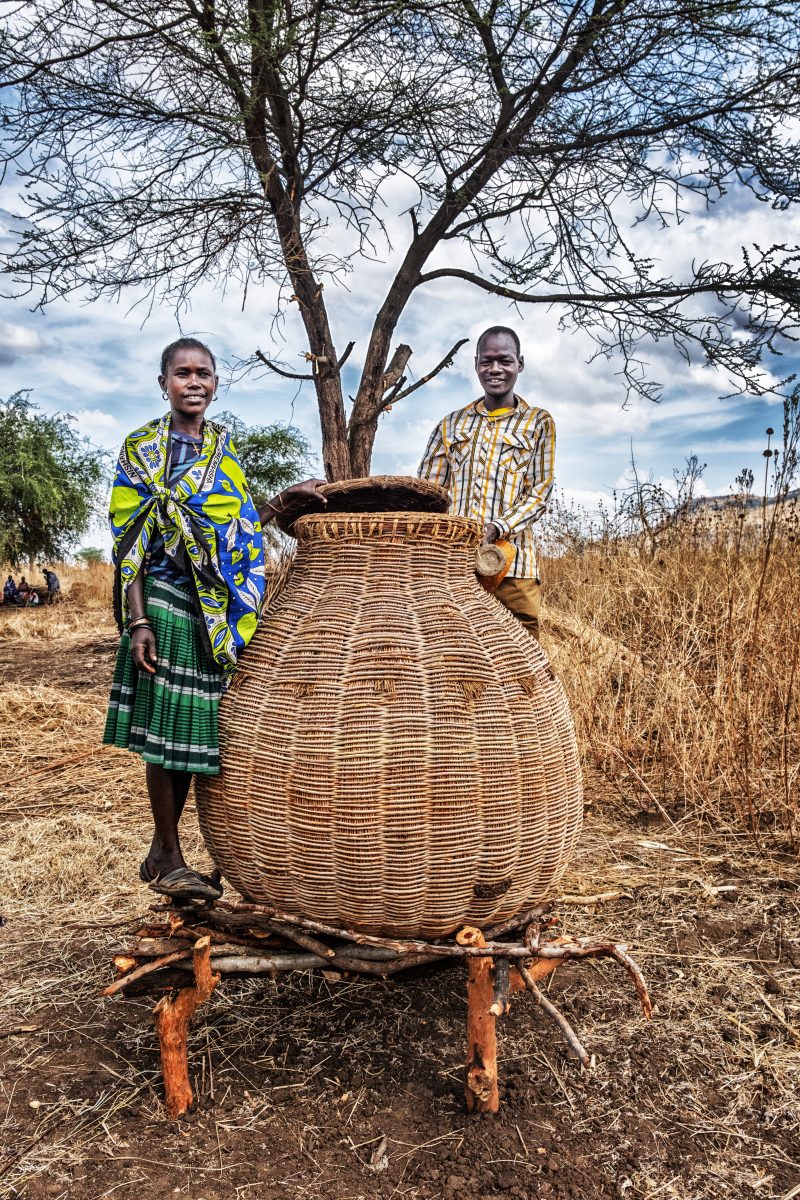
One success story is the microcredit system that Vétérinaires Sans Frontières Belgium is helping to set up. For 15 years, we have actively supported local Village Saving and Loan Associations (VSLAs) through training in accounting and entrepreneurship, subsidies and digitisation. These groups consist of 15 to 30 villagers who meet weekly to save money by contributing to the savings fund through one or more shares. They also make a compulsory contribution to a social welfare fund. Those who save can then also take out a loan to set up new activities and diversify their income.
“Before, our only source of income was the production and sale of charcoal. Joining this group has allowed us to move away from that. We used the money we borrowed to set up activities in livestock and retail, and recently we also opened a local brewery,” Mariko Lochugae says proudly. He and his wife, Clementina Apie, joined the Looi savings group in 2019, which is among the youngest of the 53 savings groups we support.
Over that period, the group’s savings doubled to 3,890,000 shillings (about € 1,000). The average annual savings capital of the older groups we support is about € 6,500, with some reaching as much as € 12,000.
Savings groups bring people together and increase their resilience. This allows them to overcome unexpected setbacks such as extreme drought or looting. The extra financial security also makes them an inspiring example to the community of success in times of uncertainty and hope for a better future.

We have been active in Karamoja, Uganda, since 2006. Our work is focused on four areas: animal health, access to loans and income diversification, animal production and market access, and natural resource management and conflict mitigation. Since 2022, we started also setting up humanitarian operations in the region, with the support of the Belgian Government (Directorate-general Development Cooperation and Humanitarian Aid).

